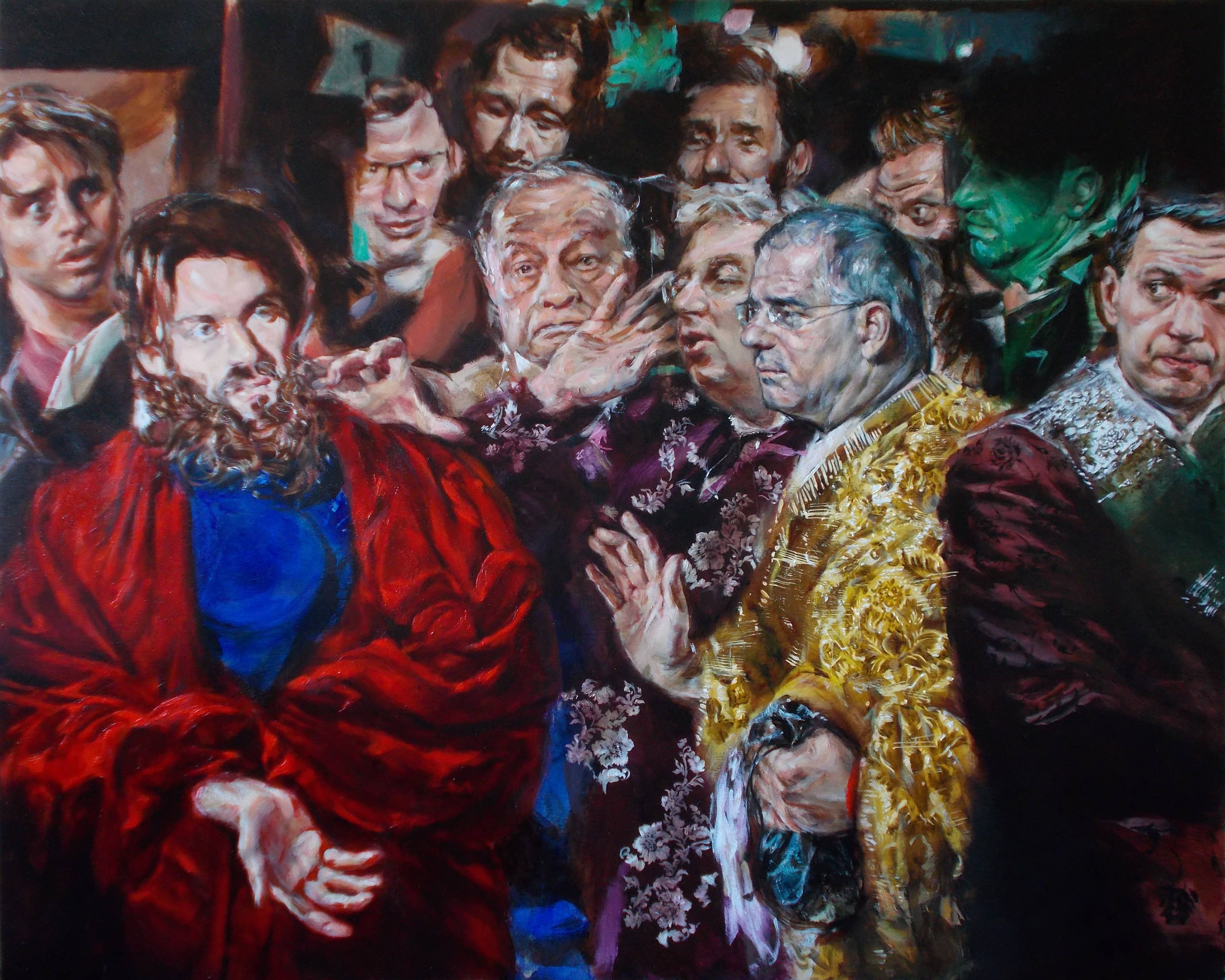
France risks becoming ungovernable. While Macron’s autocratic style is much to blame for the current impasse, the fundamental problem lies in the development of the parties and party elites.
It remains to be seen how the suspension of Fidesz’s membership in the European People’s Party will play out in the EU parliamentary elections and beyond. One thing is sure, however: Viktor Orbán’s attacks on democratic institutions are nothing new. Here is a set of reads from the Eurozine archive on the recent political transformations in Hungary.

The Traders drive Jesus away from the Temple. (Oil on canvas, 2019.) Courtesy of the artist, Balázs Pálfi.
László Győri says that Orbán’s total offensive on the Hungarian cultural establishment resulted in almost total conformity to the nationalism of Fidesz and the sidelining of independent culture:
For Shailini Randeria, the systematic erosion of the autonomy of Hungary’s universities represents the government’s is committed to the political control of science:
Orbán’s assault on academic freedom
Poland’s PiS government has, astonishingly, almost exceeded Hungary’s in the speed of its descent into illiberalism ascent, and EU sanctions against both countries have been on the table since 2016 reports Cas Muddle:
The Polish boomerang: On Warsaw’s adoption of the ‘Budapest Model’
Fidesz’s constitutional counter-revolution has shown that democratic culture is more crucial than formal legality to guaranteeing rule of law, writes Gábor Halmai:
The decline of liberal democracy in Europe’s midst
Brussels is not empowered to act as a policeman for liberal democracy in Europe. But, Burkhard Müller asks, should it be?
This archive selection is part of our 6/2019 newsletter. Subscribe here to get the bi-weekly updates about latest publications and news on partner journals.
Published 21 March 2019
Original in English
First published by Eurozine
© Eurozine
PDF/PRINTSubscribe to know what’s worth thinking about.

France risks becoming ungovernable. While Macron’s autocratic style is much to blame for the current impasse, the fundamental problem lies in the development of the parties and party elites.

The Courts have acquiesced, the populace is compliant and the Democratic Party is splintered. Without any way to make their opposition felt, Trump’s opponents’ only hope is that the economy will cause MAGA voters to rethink.